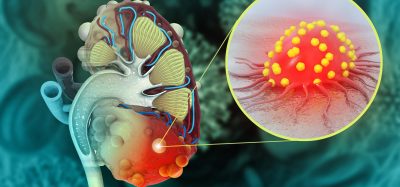New findings may lead to cardiovascular disease treatment
Posted: 31 March 2022 | Ria Kakkad (Drug Target Review) | No comments yet
New research has found that immune cells produce a chemical messenger that prevents heart disease–related inflammation


A study from the Massachusetts General Hospital (MGH), US has found a potential way to prevent white blood cells turning against the body — in cardiovascular disease, their inflammatory aggression can harm arteries and the heart. The research, that was recently published in Nature Immunology, provides insights into the pathways that increase or decrease the bone marrow’s output of these cells. The findings may lead to new treatments for conditions that arise when the balance of white blood cell production goes awry.
The nervous system plays a role in controlling blood cell production through chemical messengers or neurotransmitters. “This is for instance important in people exposed to stress, where stress hormones — part of the ‘fight-or-flight’ response controlled by the sympathetic nervous system — may increase bone marrow activity and cardiovascular inflammation in response to the neurotransmitter noradrenaline,” explained Dr Matthias Nahrendorf, senior author of the study. The sympathetic nerves have a counter player — the parasympathetic nerves, which slow down responses and bring about a state of calm to the body, mainly through the neurotransmitter acetylcholine.
Acetylcholine can have a protective effect against inflammation and heart disease; therefore, the researchers studied this neurotransmitter in the bone marrow. “When we looked into how acetylcholine acts on the production of blood cells, we found that it does the expected — it reduces white blood cells, as opposed to noradrenaline, which increases them,” said Nahrendorf. “What was unexpected though was the source of the neurotransmitter acetylcholine.”
The team found no evidence in the bone marrow of the typical nerve fibres that are known to release acetylcholine. Instead, B cells supplied the acetylcholine in the bone marrow. “Thus, B cells counter inflammation, even in the heart and the arteries, via dampening white blood cell production in the bone marrow. Surprisingly, they use a neurotransmitter to do so,” said Nahrendorf.
Tapping into this process may help investigators develop strategies to block inflammation in cardiovascular conditions such as atherosclerosis. “Ultimately this may lead to new therapeutics that combat myocardial infarction, stroke and heart failure,” concluded Nahrendorf.
Related topics
Disease Research, Immunology, Immunotherapy, Targets, Therapeutics
Related conditions
Atherosclerosis, cardiovascular disease (CVD), Heart disease
Related organisations
Massachusetts General Hospital (MGH)
Related people
Dr Matthias Nahrendorf








